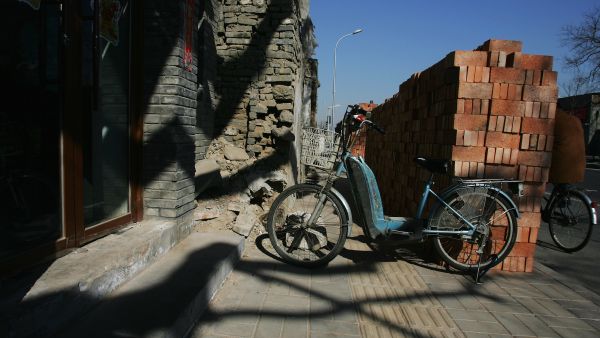Seven kidnapped Estonians were freed in Lebanon Thursday, almost four months since being abducted by armed men as they entered the country on a bicycle tour from neighbouring Syria, a police official said.
“The seven were returned to the town of Arsal (in the eastern Bekaa Valley) and appear to be in good health,” the official said, requesting anonymity as he was not authorized to speak to the press.
“They are now on their way to Beirut," he added. "We will have more information when they arrive.”
It was not immediately clear how the seven men came to be released. Lebanon’s Interior Minister Marwan Charbel said he could not confirm reports that a ransom was paid to secure their freedom.
“To my knowledge they (the abductors) did not make any demands for a ransom for their release,” Mr. Charbel told Lebanese television, adding the men were heading to the French embassy and were expected to return to Estonia later Thursday.
“Our sole priority right now is to ensure they arrive at the embassy safe and sound, and then we will hear whatever details they have,” the minister added.
The abductors−believed to be an unknown fundamentalist group called Haraket al-Nahda Wal-Islah (Movement for Renewal and Reform) −had reportedly demanded ransom in exchange for the release of the Estonians.
The men, all in their 30s, were kidnapped on March 23 in Lebanon’s lawless Bekaa Valley.
The case had for months been shrouded in mystery, but several people were arrested in Lebanon in connection with the kidnapping.
The Estonians were shown appealing for help in videos posted on the Internet on April 20 and May 20 before a third video was sent to their relatives on July 8.
In the first video, the seven called on the leaders of Lebanon, Saudi Arabia, Jordan and France − but not Estonia −to help them.
They did not present any demands on behalf of their captors nor did they specify what country they were in.
Sources said that investigators at the time determined that the video was uploaded in the Syrian capital Damascus, leading to speculation that the men were moved across the border from Lebanon.

It is unclear if these kidnapped Estonian cyclists still have their bikes in their possession, but are probably happy to have escaped with
their lives for now.







